
Cultural and Academic Heartbeat: Universidad in Zaragoza
Nestled in the vibrant city of Zaragoza, the Universidad neighbourhood is a captivating blend of academic prestige and cultural richness. This area is home to the University of Zaragoza, one of Spain's oldest universities, which infuses the neighbourhood with a youthful and intellectually stimulating atmosphere. As you stroll through its streets, you'll encounter an array of historic buildings, bustling cafes, and leafy parks, all contributing to its unique charm. The architectural splendor of the Universidad neighbourhood is evident in its grand university buildings and beautiful plazas. One of the highlights is the Paraninfo, the university's main building, which showcases stunning neoclassical architecture. The area also boasts several museums, including the Museum of Natural Sciences and the Museum of the University of Zaragoza, offering fascinating insights into both natural history and the university's storied past. Foodies will find plenty to love in Universidad, with a range of eateries serving everything from traditional Aragonese cuisine to international delights. The neighbourhood's vibrant nightlife is another draw, with numerous bars and clubs catering to students and visitors alike. Whether you're here to explore the rich academic heritage, enjoy a leisurely meal, or simply soak in the lively atmosphere, Universidad in Zaragoza promises a memorable experience.
Local tips in Universidad
- Visit the Paraninfo building to admire its neoclassical architecture and explore its art exhibitions.
- Take a leisurely walk through Parque Grande José Antonio Labordeta, the largest park in the city, located nearby.
- Try traditional Aragonese dishes at local restaurants for an authentic culinary experience.
- Check out the student-friendly bars and clubs for a taste of Zaragoza's nightlife.
Cultural and Academic Heartbeat: Universidad in Zaragoza
Nestled in the vibrant city of Zaragoza, the Universidad neighbourhood is a captivating blend of academic prestige and cultural richness. This area is home to the University of Zaragoza, one of Spain's oldest universities, which infuses the neighbourhood with a youthful and intellectually stimulating atmosphere. As you stroll through its streets, you'll encounter an array of historic buildings, bustling cafes, and leafy parks, all contributing to its unique charm. The architectural splendor of the Universidad neighbourhood is evident in its grand university buildings and beautiful plazas. One of the highlights is the Paraninfo, the university's main building, which showcases stunning neoclassical architecture. The area also boasts several museums, including the Museum of Natural Sciences and the Museum of the University of Zaragoza, offering fascinating insights into both natural history and the university's storied past. Foodies will find plenty to love in Universidad, with a range of eateries serving everything from traditional Aragonese cuisine to international delights. The neighbourhood's vibrant nightlife is another draw, with numerous bars and clubs catering to students and visitors alike. Whether you're here to explore the rich academic heritage, enjoy a leisurely meal, or simply soak in the lively atmosphere, Universidad in Zaragoza promises a memorable experience.
Iconic landmarks you can’t miss
Aljafería Palace
Explore the rich history and stunning architecture of Aljafería Palace, a UNESCO World Heritage Site in Zaragoza, Spain.
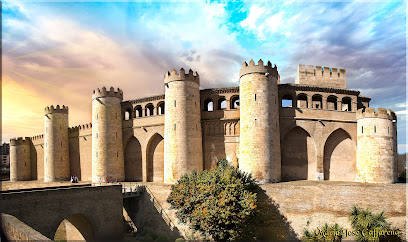
Parque Grande José Antonio Labordeta
Explore the beauty and tranquility of Parque Grande José Antonio Labordeta, a must-visit city park in Zaragoza, Spain.
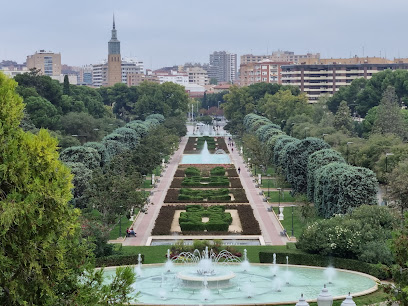
Plaza del Pilar
Discover the captivating Plaza del Pilar in Zaragoza, where stunning architecture meets vibrant culture at the heart of Spain's historic city.
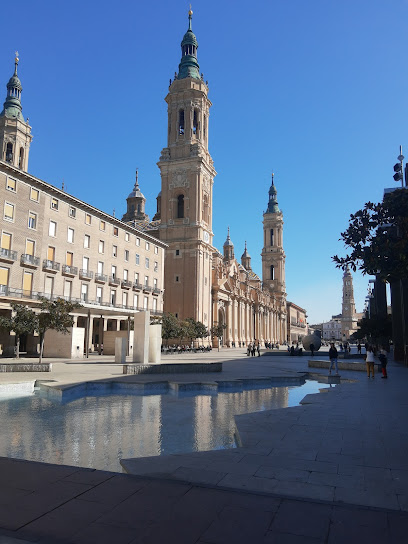
Puerta del Carmen
Discover the grandeur of Puerta del Carmen, a historical gem in Zaragoza that embodies the city's rich history and architectural brilliance.
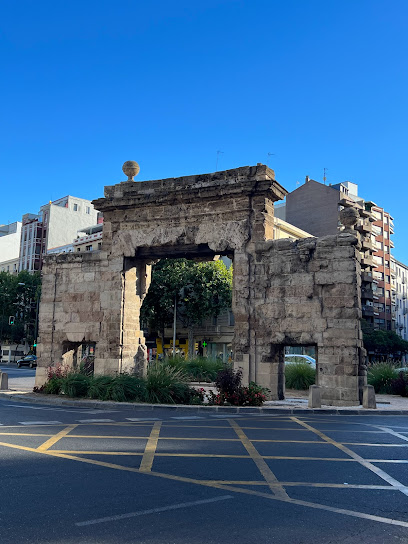
Fuente de la Hispanidad
Discover the stunning Fuente de la Hispanidad in Zaragoza, a monument celebrating Spanish heritage with its artistic beauty and tranquil atmosphere.
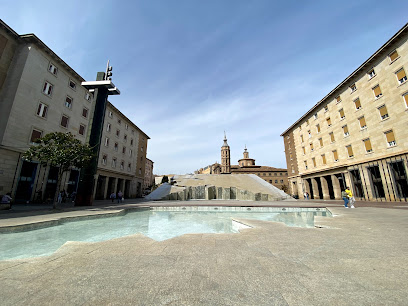
Monumento a Francisco de Goya
Discover the Monument to Francisco de Goya in Zaragoza, a captivating tribute to one of Spain's greatest artists, surrounded by historical beauty and culture.
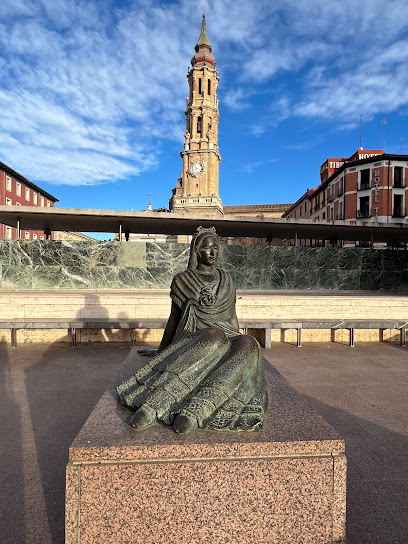
Monumento a los Mártires de la Religión y de la Patria
Explore Zaragoza's Monument to the Martyrs of Religion and Homeland, a significant historical landmark that honors sacrifice and patriotism in the heart of the city.
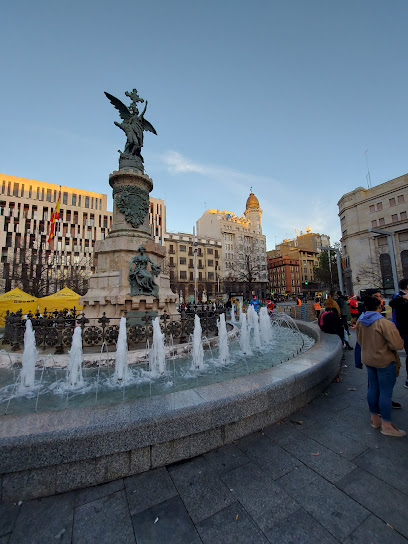
Memorial Sites of Zaragoza
Discover the rich historical tapestry of Zaragoza through its stunning Memorial Sites, where art meets history in a captivating open-air tribute.
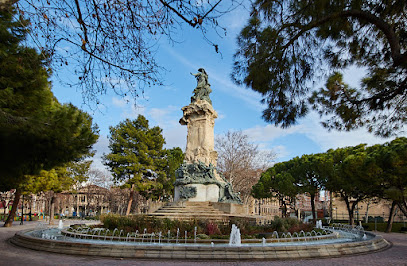
Puerta del Palacio de los Salabert-Sora
Explore the enchanting Puerta del Palacio de los Salabert-Sora, a historical landmark in Zaragoza's Old Town that captures the city's rich architectural heritage.
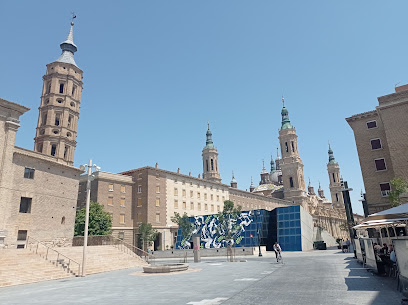
Arco entrada Universidad de Zaragoza
Discover the Arco entrada Universidad de Zaragoza, a stunning cultural landmark rich in history and architectural beauty in the heart of Zaragoza.
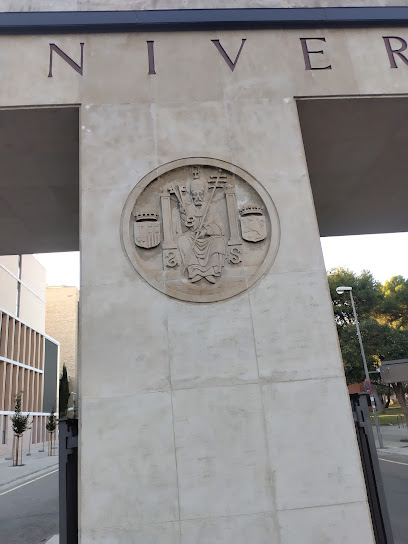
Unmissable attractions to see
Cathedral-Basilica of Our Lady of the Pillar
Explore the exquisite beauty and rich history of the Cathedral-Basilica of Our Lady of the Pillar in Zaragoza, Spain's baroque masterpiece.
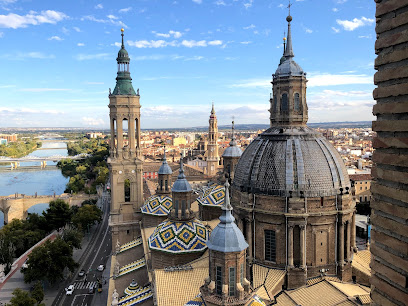
Aljafería Palace
Experience the enchanting Aljafería Palace in Zaragoza, a stunning heritage site showcasing the best of Islamic and Mudejar architecture.
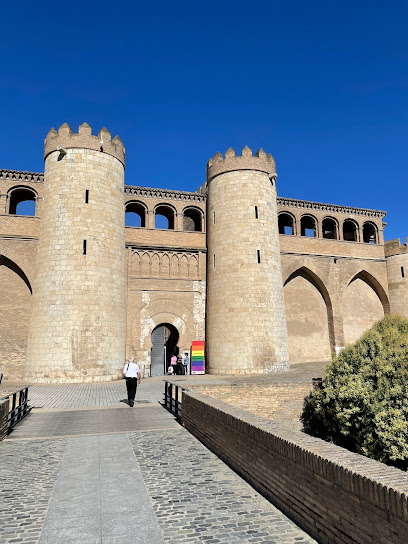
Aquarium River of Zaragoza
Explore the stunning underwater world at the Aquarium River of Zaragoza, a family-friendly attraction showcasing diverse freshwater ecosystems and aquatic life.
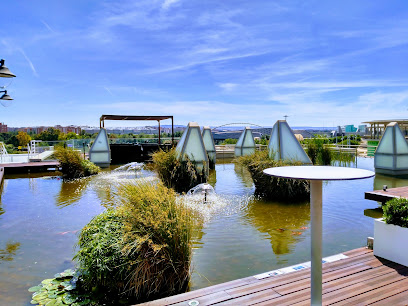
Cathedral of the Savior of Zaragoza
Explore the stunning architecture and rich history of the Cathedral of the Savior, a must-visit landmark in Zaragoza's vibrant Old Town.

Museo del Teatro de Caesaraugusta
Explore the fascinating remnants of Roman Zaragoza at Museo del Teatro de Caesaraugusta, an archaeological gem in the heart of the city.
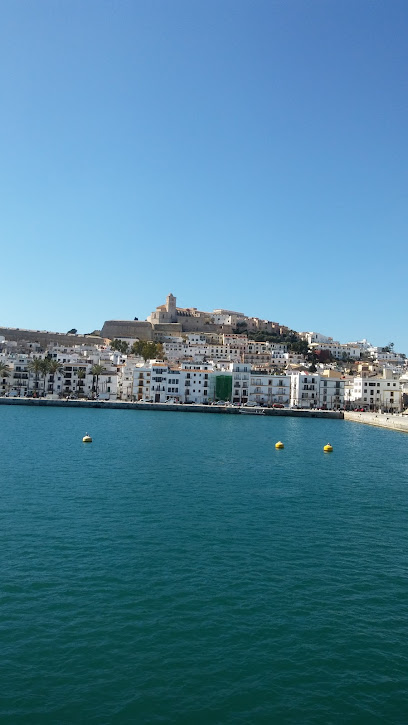
Museo de Ciencias Naturales de la Universidad de Zaragoza
Explore the Museo de Ciencias Naturales de la Universidad de Zaragoza, a haven for science enthusiasts and families alike, showcasing the wonders of natural history.
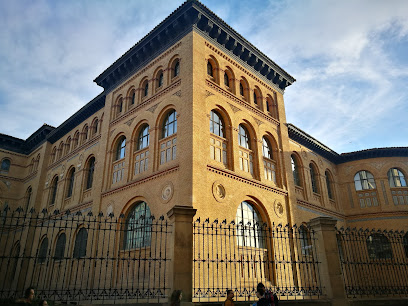
Fuente de la Hispanidad
Explore the Fuente de la Hispanidad, an iconic fountain in Zaragoza celebrating the cultural bonds between Spain and Latin America, rich in history and beauty.
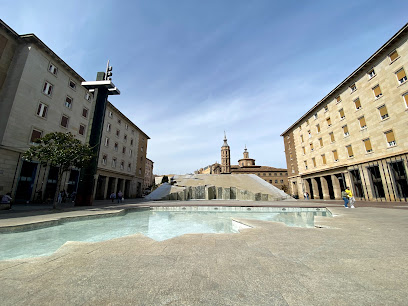
Leaning Tower of Zaragoza
Explore the Leaning Tower of Zaragoza, a unique architectural marvel that embodies the city's artistic spirit and rich historical legacy.
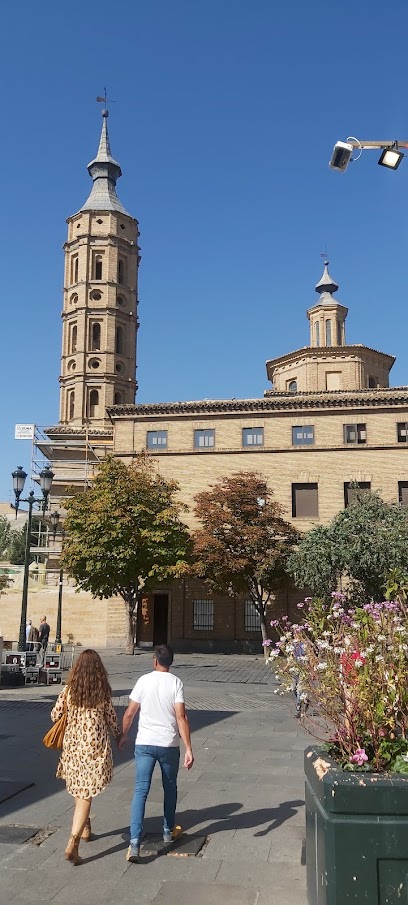
Essential places to dine
Nómada Street Food
Experience the authentic flavors of street food in Zaragoza at Nómada Street Food - where tradition meets innovation in every bite.
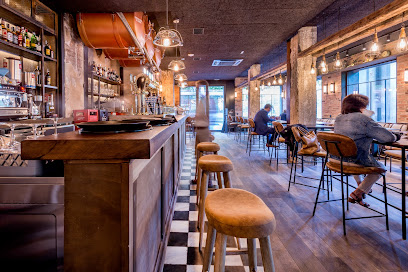
Baobab Restaurant
Discover Baobab Restaurant: A vegetarian haven in Zaragoza offering fresh ingredients & innovative vegan dishes in a cozy atmosphere.
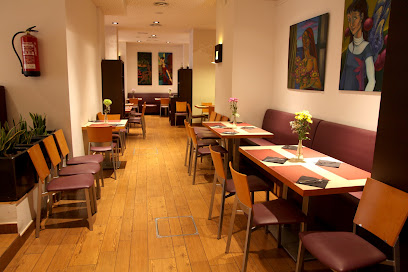
El Paladar Restaurant
Experience authentic Spanish cuisine at El Paladar Restaurant in Zaragoza – where flavor meets tradition in every dish.
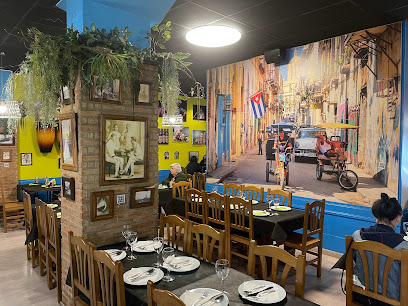
Restaurante La Rinconada de Lorenzo | Zaragoza
Discover exquisite Spanish and Mediterranean flavors at Restaurante La Rinconada de Lorenzo in Zaragoza – a must-visit culinary destination for travelers.
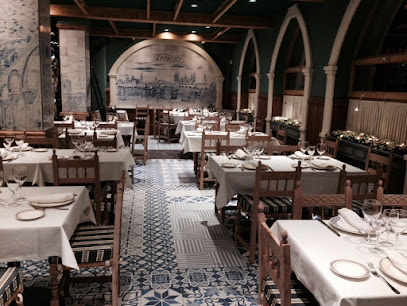
Casa Unai
Experience authentic Mediterranean flavors at Casa Unai in Zaragoza - a must-visit destination for food lovers seeking genuine Spanish cuisine.
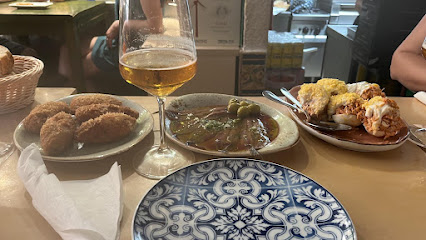
Restaurante Casa Lac
Experience the exquisite flavors of Aragonese cuisine at Restaurante Casa Lac in Zaragoza's historic Old Town.
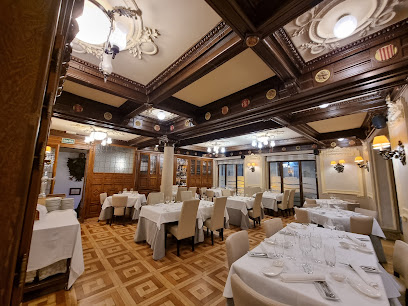
Taberna la piedra
Discover authentic Spanish flavors at Taberna la Piedra, Zaragoza's beloved restaurant known for its warm ambiance and delectable traditional dishes.
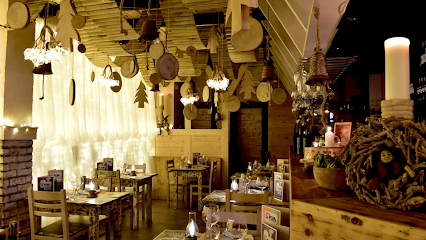
El Pancetas
Experience Zaragoza's local flavors at El Pancetas, where craft beer meets delicious tapas in a lively atmosphere.
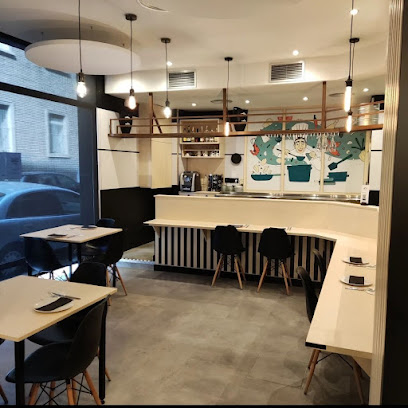
Restaurante Txalupa
Experience exquisite Spanish cuisine at Restaurante Txalupa in Zaragoza, where tradition meets modern culinary artistry.
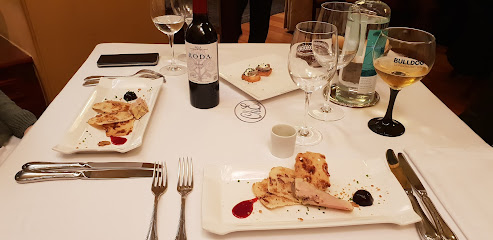
Restaurante El Bandido
Experience authentic Spanish cuisine and vibrant tapas at Restaurante El Bandido in Zaragoza – A gastronomic delight awaits!
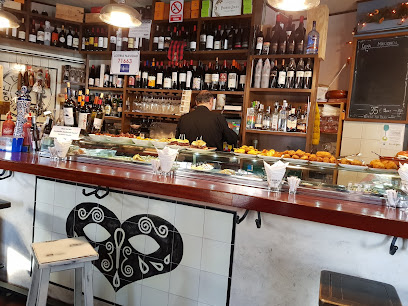
Markets, malls and hidden boutiques
Aragonia
Explore Aragonia in Zaragoza: A vibrant shopping mall with dining, entertainment, and family-friendly activities for everyone.
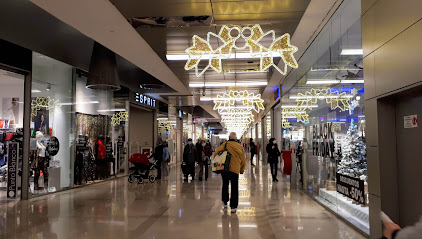
Centro Comercial Augusta
Discover the ultimate shopping experience at Centro Comercial Augusta in Zaragoza, where fashion meets local flavors and entertainment awaits.
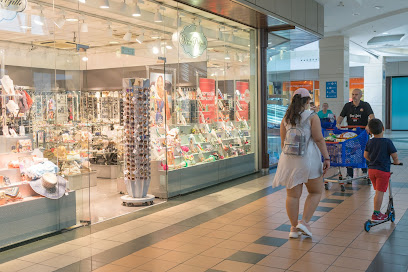
La Torre Outlet Zaragoza
Explore La Torre Outlet Zaragoza for incredible discounts on top brands in a stylish shopping environment, perfect for tourists and locals alike.
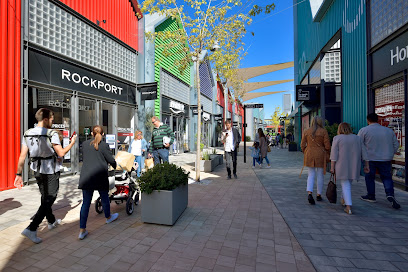
Store - Museum Real Zaragoza
Experience the rich history of Real Zaragoza at the Store / Museum, where sports and culture come together in an unforgettable setting.
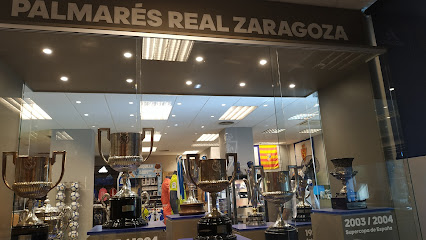
The Shuave Shop
Discover eclectic novelties and local artistry at The Shuave Shop, a vibrant gem in Zaragoza's Old Town that captures the city's modern spirit.
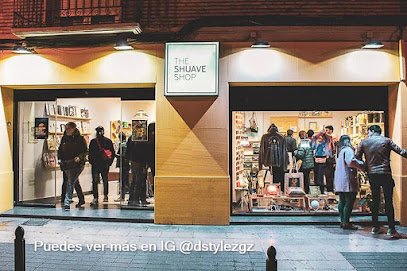
Grado90
Explore Grado90 in Zaragoza, the ultimate skate shop for enthusiasts seeking quality gear and a taste of local skate culture.
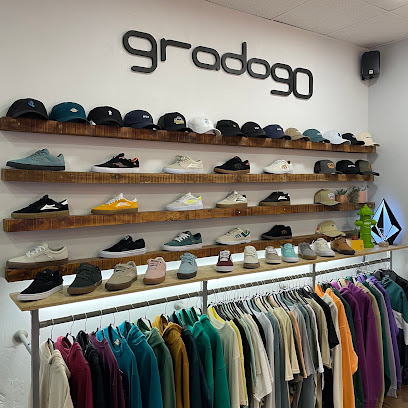
Unity Shop
Explore Unity Shop in Zaragoza for trendy clothing, stylish shoes, and essential skateboarding gear, all under one roof.
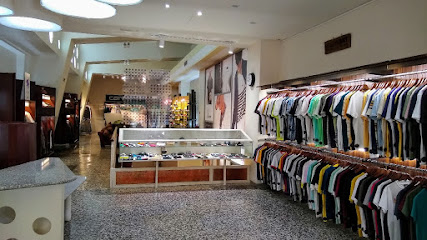
Tienda de Aragonia- Honos Martinez
Explore Tienda de Aragonia in Zaragoza for an unforgettable shopping experience filled with local flair and delicious dining.
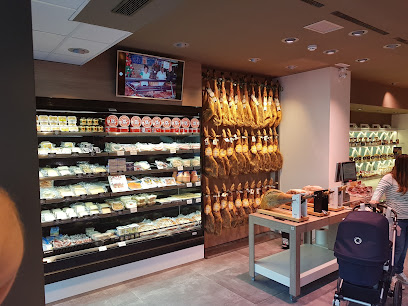
Zaragoza Olé Souvenirs
Discover authentic local crafts and unique mementos at Zaragoza Olé Souvenirs, the perfect stop for tourists in Zaragoza's vibrant Old Town.
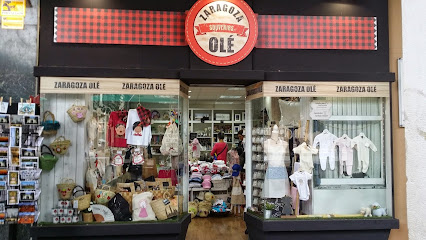
Nice Things Paloma S.
Discover stylish dresses and unique costume jewelry at Nice Things Paloma S. in Zaragoza - where fashion meets elegance.
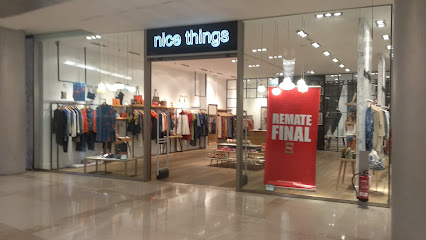
Essential bars & hidden hideouts
Rock & Blues Cafe
Discover the vibrant atmosphere of Rock & Blues Cafe, Zaragoza's premier live music bar, where great food meets unforgettable performances.
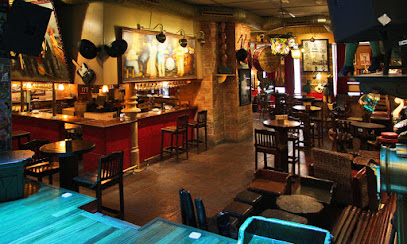
Bar London
Discover the vibrant grill and bar scene at Bar London in Zaragoza, where delicious flavors and a lively atmosphere await every visitor.
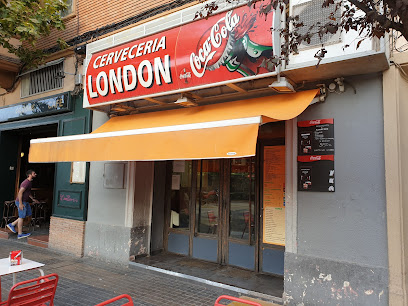
Bodegas Almau
Discover Zaragoza's best-kept secret at Bodegas Almau, where exquisite wines and traditional tapas meet in a lively atmosphere.
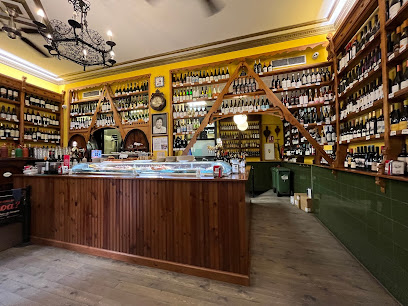
Bull McCabe's Irish Bar
Bull McCabe's Irish Bar in Zaragoza: A lively Irish pub experience with traditional drinks, delicious food, and a welcoming atmosphere.
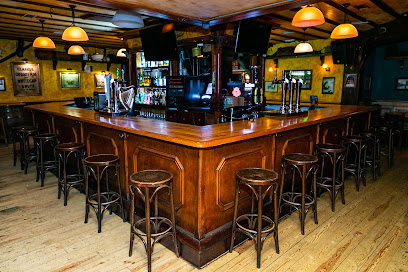
Umalas Bar
Experience the vibrant nightlife at Umalas Bar, Zaragoza's premier cocktail bar offering an exquisite selection of drinks in a stylish setting.
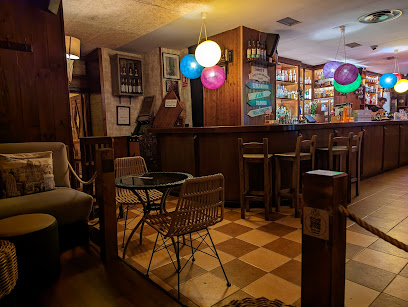
Pub Loch Ness
Discover the vibrant atmosphere of Pub Loch Ness, a favorite spot in Zaragoza for local brews and a friendly ambiance that brings people together.
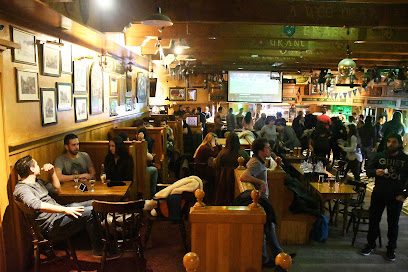
La terraza
Discover La Terraza, Zaragoza's vibrant bar, known for its exquisite cocktails, lively atmosphere, and perfect outdoor seating for a memorable night.
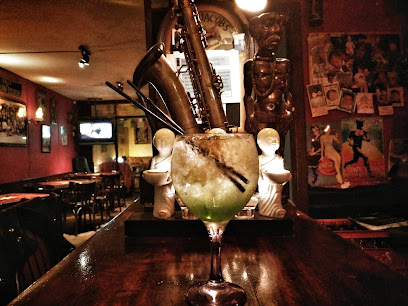
Bar Atrio
Experience the enchanting nightlife of Zaragoza at Bar Atrio, where delightful drinks and live piano music create an unforgettable atmosphere.
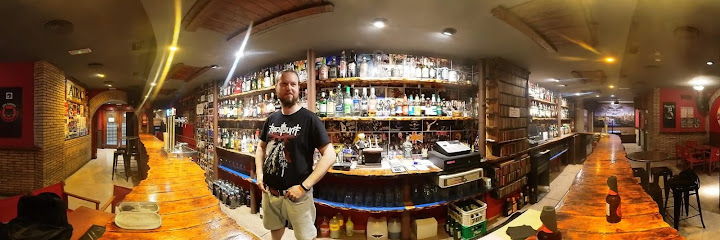
Invictus
Experience Zaragoza's nightlife at Invictus, a lively bar offering cocktails, darts, and live music in a vibrant atmosphere.
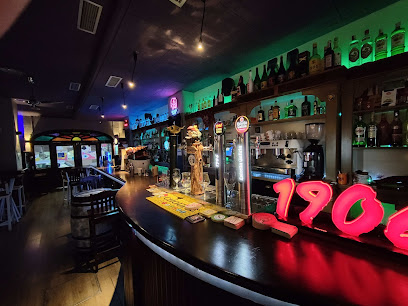
El Federal Cocktail Bar
Discover Zaragoza's eclectic nightlife at El Federal Cocktail Bar, where innovative mixology meets a vibrant atmosphere in the heart of the city.
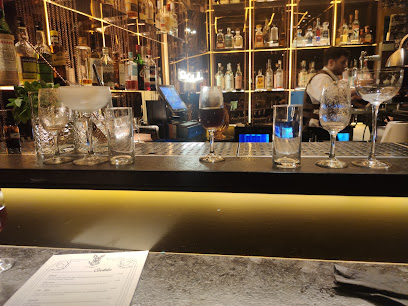
Local Phrases
-
- HelloHola
[o-la] - GoodbyeAdiós
[a-di-ós] - YesSí
[sí] - NoNo
[no] - Please/You're welcomePor favor/De nada
[por fa-vor/de na-da] - Thank youGracias
[gra-cias] - Excuse me/SorryPerdón/Lo siento
[per-dón/lo sien-to] - How are you?¿Cómo estás?
[¿có-mo es-tás?] - Fine. And you?Bien. ¿Y tú?
[bien. ¿y tú?] - Do you speak English?¿Hablas inglés?
[¿ha-blas in-glés?] - I don't understandNo entiendo
[no en-tien-do]
- HelloHola
-
- I'd like to see the menu, pleaseMe gustaría ver la carta, por favor
[me gus-ta-ría ver la car-ta, por fa-vor] - I don't eat meatNo como carne
[no co-mo car-ne] - Cheers!¡Salud!
[¡sa-lud!] - I would like to pay, pleaseMe gustaría pagar, por favor
[me gus-ta-ría pa-gar, por fa-vor]
- I'd like to see the menu, pleaseMe gustaría ver la carta, por favor
-
- Help!¡Ayuda!
[¡ayu-da!] - Go away!¡Vete!
[¡ve-te!] - Call the Police!¡Llama a la policía!
[¡ya-ma a la po-li-cía!] - Call a doctor!¡Llama a un médico!
[¡ya-ma a un mé-di-co!] - I'm lostEstoy perdido
[es-toy per-di-do] - I'm illEstoy enfermo
[es-toy en-fer-mo]
- Help!¡Ayuda!
-
- I'd like to buy...Me gustaría comprar...
[me gus-ta-ría com-prar...] - I'm just lookingSolo estoy mirando
[so-lo es-toy mi-ran-do] - How much is it?¿Cuánto cuesta?
[¿cuan-to cues-ta?] - That's too expensiveEs demasiado caro
[es de-ma-sia-do ca-ro] - Can you lower the price?¿Puedes bajar el precio?
[¿pue-des ba-jar el pre-cio?]
- I'd like to buy...Me gustaría comprar...
-
- What time is it?¿Qué hora es?
[¿qué ho-ra es?] - It's one o'clockEs la una
[es la u-na] - Half past (10)Las diez y media
[las diez y me-dia] - MorningMañana
[ma-ña-na] - AfternoonTarde
[tar-de] - EveningNoche
[no-che] - YesterdayAyer
[a-yer] - TodayHoy
[hoy] - TomorrowMañana
[ma-ña-na] - 1Uno
[u-no] - 2Dos
[dos] - 3Tres
[tres] - 4Cuatro
[cua-tro] - 5Cinco
[cin-co] - 6Seis
[seis] - 7Siete
[sie-te] - 8Ocho
[o-cho] - 9Nueve
[nue-ve] - 10Diez
[diez]
- What time is it?¿Qué hora es?
-
- Where's a/the...?¿Dónde está el/la...?
[¿dón-de es-tá el/la...?] - What's the address?¿Cuál es la dirección?
[¿cual es la di-rec-ción?] - Can you show me (on the map)?¿Puedes mostrarme (en el mapa)?
[¿pue-des mos-trar-me (en el ma-pa)?] - When's the next (bus)?¿Cuándo es el próximo (autobús)?
[¿cuan-do es el pró-xi-mo (au-to-bús)?] - A ticket (to ....)Un billete (a ....)
[un bi-lle-te (a ....)]
- Where's a/the...?¿Dónde está el/la...?
History of Universidad
-
Founded in 1542, the Universidad de Zaragoza is one of the oldest universities in Spain. Its establishment marked a significant milestone in the region's commitment to education and culture, attracting scholars and students from various backgrounds. The university has played a pivotal role in the intellectual and cultural development of Zaragoza and has been integral to the region's evolution.
-
During the 18th century, the Universidad de Zaragoza became a center for Enlightenment thought, promoting scientific inquiry and rationalism. This period saw the rise of notable figures such as the mathematician José de Echegaray, who contributed to the advancement of education and the sciences in Spain. The university's focus on progressive ideas had a lasting impact on the cultural landscape of the Universidad neighborhood.
-
The Spanish Civil War (1936-1939) had a profound effect on the Universidad neighborhood. The university was a site of political activity and ideological conflict. Post-war, the area became a hub for academic and social revitalization as scholars returned to rebuild the educational institutions, leading to a resurgence in cultural and intellectual life.
-
In the late 20th century, the Universidad neighborhood experienced significant urban development. The expansion of the university and the influx of students led to the construction of new facilities, residences, and amenities, transforming the area into a vibrant academic community. This modernization reflected broader trends in Zaragoza's urban planning and demographic shifts.
-
In recent decades, the Universidad neighborhood has become known for its cultural festivals, including academic conferences, art exhibitions, and local celebrations. These events foster community engagement and reflect the area's diverse cultural heritage, emphasizing the importance of the university as a cultural and social cornerstone for Zaragoza.
Universidad Essentials
-
Universidad is easily accessible from other neighborhoods in Zaragoza. The Zaragoza Delicias train station provides connections to major cities, and local buses (lines 34 and 51) connect the area to the city center. Taxis are also available, providing a convenient alternative for direct transport.
-
Within Universidad, the best way to get around is by using the extensive bus network, which includes several lines that connect to key areas. Bicycles can be rented from local shops, and there are dedicated bike lanes for safe cycling. Walking is also a pleasant option, especially in warmer weather, as many attractions are within a short distance.
-
Universidad is generally a safe neighborhood for tourists, but standard precautions should be observed. Areas around the university can be lively at night, so it is advisable to stick to well-lit streets. Avoid displaying valuable items and be cautious in crowded places. While there are no specific high-crime areas targeting tourists, it is always best to remain vigilant.
-
In case of emergency, dial 112 for immediate assistance in Spain. Local hospitals and medical facilities are available in Universidad. It is advisable to have travel insurance that covers emergencies. Pharmacies are present throughout the neighborhood for minor health issues and over-the-counter medications.
-
Fashion: Do wear comfortable clothing suitable for walking, and dress modestly when visiting religious sites. Don't wear overly casual attire, such as beachwear, in public places. Religion: Do respect local customs; when entering churches, cover your shoulders and knees. Public Transport: Do be polite and give up your seat to the elderly. Don't eat or drink on public transport. Greetings: Do greet with a smile and a handshake. Don't forget to thank people in Spanish ('gracias') for added politeness. Eating & Drinking: Do try local tapas and enjoy meals at traditional restaurants. Don't engage in loud conversations in dining establishments.
-
To experience Universidad like a local, visit the university's cultural events, which are often open to the public. Explore local markets for fresh produce and unique snacks. Engage with students and locals in cafes, as they are often welcoming and eager to share their insights about the area. Don't miss the nearby parks for a leisurely stroll or picnic.
Trending Landmarks in Universidad
-
Aljafería Palace
-
Parque Grande José Antonio Labordeta
-
Plaza del Pilar
-
Puerta del Carmen
-
Fuente de la Hispanidad
-
Monumento a Francisco de Goya
-
Monumento a los Mártires de la Religión y de la Patria
-
Memorial Sites of Zaragoza
-
Puerta del Palacio de los Salabert-Sora
-
Arco entrada Universidad de Zaragoza
Nearby Cities to Universidad
-
Things To Do in Huesca
-
Things To Do in Lleida
-
Things To Do in Pamplona
-
Things To Do in Teruel
-
Things To Do in Lourdes
-
Things To Do in Tarragona
-
Things To Do in San Sebastián
-
Things To Do in Andorra la Vella
-
Things To Do in Arinsal
-
Things To Do in La Massana
-
Things To Do in Escaldes-Engordany
-
Things To Do in Ordino
-
Things To Do in Encamp
-
Things To Do in El Serrat
-
Things To Do in Canillo










